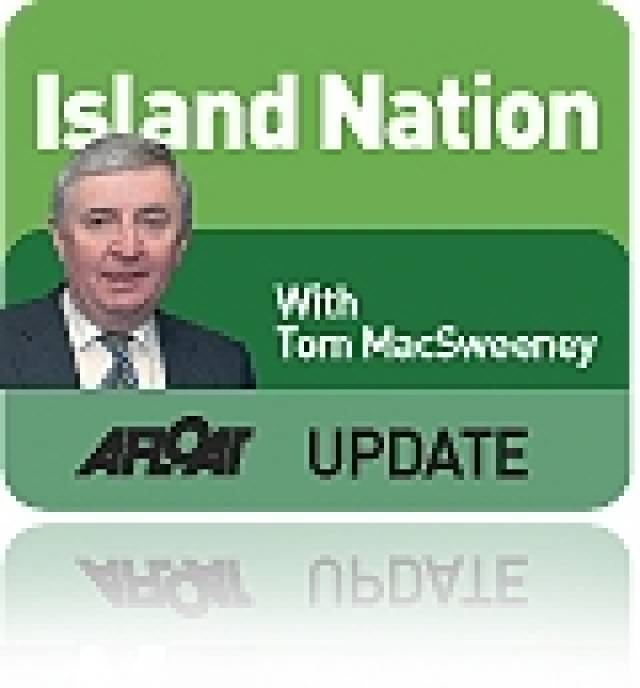#vor – As the Volvo Ocean Race organisers release the investigation report into the Team Vestas Wind shipwreck in the Indian Ocean, Irish sailor Brian Carlin who was the yacht's Onboard Reporter describes dramatically on the current edition of THIS ISLAND NATION just what happened and how he survived.
"It wasn't what I signed up for in the round-the-world race. We only managed to get 15,000 miles before that night, but it has been character-building. I have learned a lot from it," he says in the interview as he describes how he was hurled forward into a bulkhead :
"I was thrown several metres, banged my head off the forward bulkhead and was stunned. I thought at first that we had hit either a floating container or a whale, but it was a chain of reefs in the Indian Ocean. I got up on deck and saw that we were in serious trouble. It was night time, dark, but there was white water crashing everywhere around the boat and we were lodged on a rock. We stayed six or seven hours on the boat. The Skipper wanted to keep us together which was the right decision, but it was tough going, we were thrown back and forth and the yacht took a heavy battering and it was all in the darkness, the only lights being the personal ones we had. It was a frightening experience to survive and the darkness made it even more so. About half-three in the morning that became too dangerous. There was about six feet to what looked like a safe piece of rock. We deployed the liferafts where we could get some protection for them on the side away from the rocks, but we had to get onto that piece of rock first to be safe. One crew member went across there first, with a rope tied around him and then the rest of us got onto it.
We clung onto that rock until daylight came up and then it was amazing to see that we were in a lagoon area which itself looked beautiful and was in the middle of the ocean."
Were you frightened at any stage that you might not survive, that you could die, I asked him?
"I was. There were two very bad moments. Initially I was a bit shocked. When we were waiting on the boat for daylight, I was afraid that it might overturn on us and we would be trapped. When we were getting off the boat onto the rock I really didn't want to leave it because you were going into the water to try to swim towards rocks which were being battered by waves and it looked like you could be battered too. But that piece of rock was the only place to be safe. The boat was no place to survive. I didn't want to do it, but I had to."
That night in the darkness they did not see sharks, but the following morning when daylight came up, they saw five or six within a hundred metres of the boat.
• Tune into Ireland's niche radio programme above and hear Brian's first-hand account of his experience and the advice he gives to all sailors to take careful notice of the safety recommendations from the RNLI
Also on the programme, the RNLI explains why the organisation is excited about the arrival of the first Shannon Class lifeboat to Lough Swilly and, continuing the explanation of nautical terms for landlubbers, the programme explains why sailors use 'port' and 'starboard' instead of 'left' and 'right'.
































































